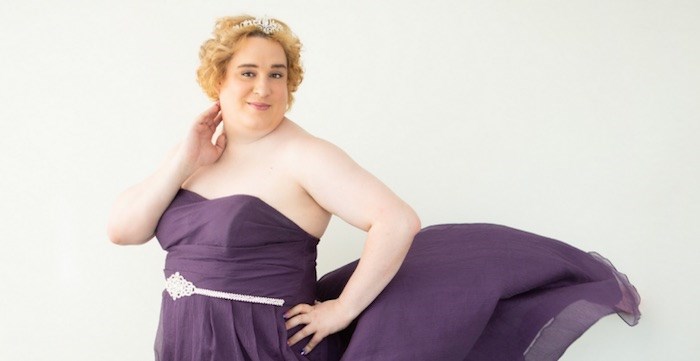 Jessica Yaniv. formerly known as Jonathan Yaniv, best known for having sparked international media attention for suing several local aestheticians at the B.C. Human Rights Tribunal after they allegedly refused to wax her genitals, which are those of an adult male. Yaniv is proposing a top-optional youth LGBTQ2S+ swim session in the Township of Langley. Photo via Jessica Yaniv (@trustednerd)/Twitter
Jessica Yaniv. formerly known as Jonathan Yaniv, best known for having sparked international media attention for suing several local aestheticians at the B.C. Human Rights Tribunal after they allegedly refused to wax her genitals, which are those of an adult male. Yaniv is proposing a top-optional youth LGBTQ2S+ swim session in the Township of Langley. Photo via Jessica Yaniv (@trustednerd)/Twitter
The B.C. Human Rights Tribunal has shown Surrey transgender woman Jessica Yaniv the door and pointed her to the courts should she wish to continue an appeal of a recent decision that found her to be unjustified and improperly motivated by financial gain and racial discrimination with her complaints against seven aestheticians who refused to wax her male genitals.
Yaniv had filed an application for reconsideration of the decision, claiming she could not afford to pay the $6,000 fine issued for improper conduct and that the ruling tribunal member Devyn Cousineau was biased.
“Ultimately, Ms. Yaniv strongly disagrees with most of my conclusions in the Final Decision and thinks that I was driven to rule against her because of public pressure. She wants a different result. However, she has not shown why considerations of fairness or justice, viewed objectively, require the Final Decision to be re‐opened and reconsidered,” stated Cousineau in her reason for decision against the application dated November 13.
“If she wants to challenge the Final Decision, she must do so in court,” Cousineau concluded.
Yaniv presented no facts to back her assertions and opinions, said Cousineau. Yaniv, for instance, stated Cousineau was unfairly “influenced by public pressure against her.”
The case sparked international outrage and severe criticism of the tribunal for letting Yaniv’s complaints go so far.
Cousineau even lowered the penalties against Yaniv after considering the “torrent of backlash and hatred” against her online following the exposure of her claim last summer.
“I can assure Ms. Yaniv I have never felt personally harassed about her case or pressured to reach a certain result,” stated Cousineau. “She has pointed to no evidence to support such an argument. Human rights complaints are frequently the subject of public interest, scrutiny and debate.
Yaniv’s application challenged many of the findings of fact but without explanation as to how fairness or justice warrants reconsideration, ruled Cousineau, who added she has no jurisdiction to re-weigh the evidence.
Yaniv, according to Cousineau, attempted to re-argue her position by claiming aestheticians should have to remove genital hair in preparation for surgeries.
“This was not an issue raised at any time in her complaints and it is not open to me to consider it now. In any event, this would not have affected my analysis of any of the issues in her complaints,” wrote Cousineau.
Yaniv had claimed discrimination against her for being refused service. A previous complaint by Yaniv against two other waxers had also been dismissed. Cousineau ruled October 22 there was a pattern of discrimination by Yaniv herself.
“I find that Ms. Yaniv’s predominant motive in filing her waxing complaints is not to prevent or remedy alleged discrimination, but to target small businesses for personal financial gain. In many of these complaints, she is also motivated to punish racialized and immigrant women based on her perception that certain ethnic groups, namely South Asian and Asian communities, are ‘taking over’ and advancing an agenda hostile to the interests of LGBTQ+ people.”
Yaniv’s motives were hence not consistent with the B.C. Human Rights Code, said Cousineau in her ruling.
Cousineau became a tribunal member in November 2017. She obtained a law degree at the University of Victoria in 2006 and has worked for Koskie Glavin Gordon law firm specializing in workplace and administrative law.


